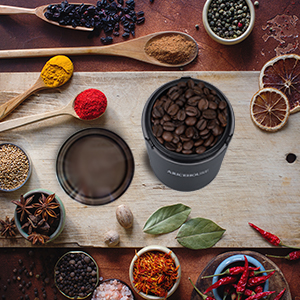Don't miss our holiday offer - 20% off

Specialty coffee has transformed the way people experience coffee, moving beyond mere consumption to an appreciation of its origins, flavors, and the artistry behind its preparation. This article delves into the rise of specialty coffee, its impact on the coffee industry, and what sets it apart from mainstream coffee.
What is Specialty Coffee?
Specialty coffee refers to the highest quality coffee beans that are carefully cultivated, harvested, and processed to bring out their unique flavors. These beans are typically grown in ideal conditions, often in high-altitude regions, and are meticulously graded and roasted to highlight their distinct characteristics.
The term “specialty coffee” also encompasses the entire coffee supply chain, from the farmers who grow the beans to the baristas who brew them. It represents a commitment to quality, sustainability, and transparency in every step of the process.
The Emergence of Third Wave Coffee
The rise of specialty coffee is closely linked to the third wave coffee movement, which emerged in the late 20th and early 21st centuries. This movement emphasizes treating coffee as an artisanal product rather than a commodity, focusing on quality, provenance, and the craft of brewing.
Third wave coffee shops often source their beans directly from farmers, ensuring fair trade practices and highlighting the specific origins of the coffee. These shops prioritize hand-brewed methods like pour-over, Aeropress, and siphon brewing, which allow for greater control over the extraction process and bring out the unique flavors of the coffee.
The Role of Baristas in Specialty Coffee
Baristas play a crucial role in the specialty coffee industry, often seen as artisans who craft each cup of coffee with precision and care. They undergo extensive training to master various brewing techniques, understand the nuances of different coffee beans, and create latte art that adds an aesthetic dimension to the coffee experience.
In specialty coffee shops, the relationship between the barista and the customer is also emphasized. Baristas often engage with customers, educating them about the origins of the coffee, the brewing process, and the flavors they can expect, creating a more personalized and informed coffee experience.
Specialty Coffee and Sustainability
Sustainability is a key focus in the specialty coffee industry. Many specialty coffee producers and roasters are committed to environmentally friendly practices, such as using organic farming methods, reducing water usage, and minimizing waste. There is also a strong emphasis on ethical sourcing, ensuring that farmers are paid fair wages and that their communities benefit from the trade.
The specialty coffee movement has also spurred innovations in sustainable packaging, with many roasters opting for biodegradable or recyclable materials to reduce their environmental impact.
The Impact of Specialty Coffee on Consumer Behavior
The rise of specialty coffee has changed consumer behavior, with more people seeking out high-quality coffee and becoming more discerning in their choices. Consumers are increasingly interested in the origins of their coffee, the roasting process, and the brewing methods used.
This shift in consumer preferences has also led to the growth of home brewing, with many coffee enthusiasts investing in high-quality coffee beans, grinders, and brewing equipment to recreate the specialty coffee experience at home.
Conclusion
The rise of specialty coffee marks a new era of coffee appreciation, where quality, sustainability, and craftsmanship are at the forefront. As more people discover the depth and complexity of specialty coffee, it continues to elevate the coffee experience, transforming it from a daily habit into a celebration of flavor, culture, and artistry.



